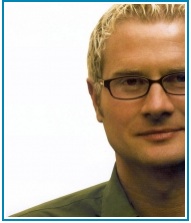 Yesterday I posted a recent interview with Rob Bell about what an “evangelical” is, and I said I’d weigh in today. I don’t think Rob Bell has defined “evangelical” but given a set of statements that are true about the use of the term in the media (political conservatives, sometimes anti-intellectual) and that are reactive and corrective to that stereotype. We need to avoid falling for how the media define terms, and it is a constant temptation in sound byte format to make our point — and that usually blocks perspective and dimension.
Yesterday I posted a recent interview with Rob Bell about what an “evangelical” is, and I said I’d weigh in today. I don’t think Rob Bell has defined “evangelical” but given a set of statements that are true about the use of the term in the media (political conservatives, sometimes anti-intellectual) and that are reactive and corrective to that stereotype. We need to avoid falling for how the media define terms, and it is a constant temptation in sound byte format to make our point — and that usually blocks perspective and dimension.
I’m dubious that Rob Bell is even attempting to define “evangelical” in its fullness. I would not equate this interview with what Rob Bell believes about “evangelicalism.”
Furthermore, he defined “evangelical” by appealing to justifiably important elements of one part of the term “evangelical” — its socially active pursuit of justice and compassion and the good.
But what he said about “evangelical” is not enough, and it fits in with a trend, a rather flippant one, of folks thinking they can determine what an evangelical is or not. Before I get to the trend, a good definition.
To define “evangelical” we need to pay attention to those who have made it their life study to come to terms with this movement, and two scholars have done just that: Mark Noll in the USA and David Bebbington (The Dominance of Evangelicalism: The Age of Spurgeon And Moody (History of Evangelicalism)
) in the UK. They agree on this: an evangelical is a Christian Protestant for whom the central ideas are the leading authority of Scripture, the necessity of personal conversion, the centrality of the death of Christ on the cross as a substitutionary atonement, and the importance of a life of active following Jesus, seen in such things as Bible reading, prayer, church attendance, and deeds of compassion and justice. That is the standard definition of evangelical. This definition summarizes those who care about getting this term accurate. It is not a definition designed to exclude some of whom they are worried. It’s big tent definition, but it bears no ill-will toward others.
) in the UK. They agree on this: an evangelical is a Christian Protestant for whom the central ideas are the leading authority of Scripture, the necessity of personal conversion, the centrality of the death of Christ on the cross as a substitutionary atonement, and the importance of a life of active following Jesus, seen in such things as Bible reading, prayer, church attendance, and deeds of compassion and justice. That is the standard definition of evangelical. This definition summarizes those who care about getting this term accurate. It is not a definition designed to exclude some of whom they are worried. It’s big tent definition, but it bears no ill-will toward others.
Now my observation today: I’m seeing a baffling desire by many who almost never talk about any of the above four ideas (as central to what they believe) but for some reason want to be called “evangelical.” They make a point to say they are evangelical. To be committed to justice or compassion as the central pursuit in life does not make one an evangelical, though evangelicals should be committed to justice and to compassion — and shame on those who aren’t. But what makes an evangelical is a commitment to the above four ideas (Bible, conversion, cross, discipleship).
My question: Why do these folks want to be connected to the evangelicals?
Now let me back down just a tad: no one is the final judge on who is and who is not an evangelical, but that doesn’t mean there isn’t a general ballpark definition like that of Noll and Bebbington that deserves serious respect. I’d call on all those who say they are evangelical to measure themselves accurately. And I’d especially call on those being asked by the media to offer clear and accurate definitions because only such folks can correct — over time — the stereotypes.

